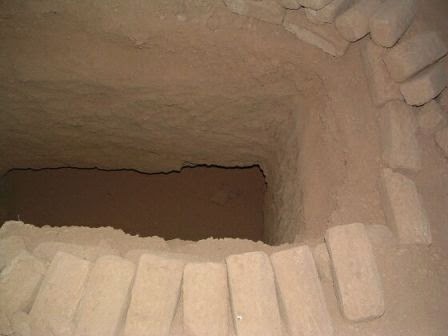Is visiting the graves of the Awliya' (pious people) permissible in Islam?
Q: Is visiting the graves of the Awliya' (pious people) permissible in Islam?
A: This matter requires explanation. It is permissible to visit the graves of Awliya' and Muslims in general since it reminds people of death and the Hereafter and to supplicate for the deceased and seek Allah's Forgiveness for them. The Prophet (peace be upon him) said: Visit the graves for they remind you of the Hereafter When visiting the graves, the Prophet used to teach the Sahabah (Companions of the Prophet) to say: As-Salamu ‘alaikum ahla ad-diyari minal-Mu’minin wal-Muslimin, wa inna in sha' Allahu bikum lahiqun, nas’alu allaha lana wa-lakum al-‘afiyah (Peace be upon you all, oh dwellers of the graves amongst the believers and Muslims. Truly, if Allah wills, we will join you. May Allah have mercy upon those who are already dead and those whom He gives respite. We implore Allah to grant well-being for both us and you).
This is the Shar`y (Islamically lawful) visit, however, women are excluded because the Prophet (peace be upon him) cursed women who visit graves. Accordingly, this indicates that it is only exclusive to men. Visiting graves for women and men was prohibited in the early days of Islam for people at that time used to attach themselves to the dead; so Allah has prohibited grave visitation for both genders. Later, both men and women were given the permission to do so. Then finally, it settled on prohibiting it for women and allowing it for men. This is because it is difficult for women to control their emotions, thus subjecting them to Fitnah (trial) when visiting graves and remembering their relatives, friends, husbands, etc. Thus, it is Allah's Wisdom to prevent them from visiting graves so as they are not subjected to Fitnah or lead others to it.
However, He (Exalted be He) approved it for men to remind them of the Hereafter, seek forgiveness and mercy for the deceased. Even if they are Kafirs (disbeliever), it is permissible to visit their graves as a reminder without saluting or supplicating for them. The Prophet (peace be upon him) did this when he visited the grave of his mother who died during the time of Jahiliyyah (pre-Islamic time of ignorance). He also sought Allah's Permission to seek her forgiveness, but he was prohibited from doing that, therefore he only visited her grave as a reminder.
The aim of visiting the graves of Muslims is to supplicate and seek Allah's Forgiveness for the deceased, remember death and the Hereafter. While visiting the graves of Kafirs is only meant for as a warning.
On the other hand, it is not permissible to visit the dead to supplicate, appeal to, vow by them or seek their help. It is also not permissible to wipe over and circumambulate around the graves. Regrettably, this is practiced by some ignorant people who go to the graves to ask the deceased for help and appeal to them. A vivid example of this can be viewed in respect of what some people do with Al-Badawy, Al-Husayn, Sheikh `Abdul-Qadir in Iraq or others, and this is certainly not permissible.
In conclusion, there are two types of visit: the first is a Shar`y visit, while the second is a Bid`ah (innovation in religion) and prohibited. The Shar`y visit includes going to the graves to seek Allah's Mercy and Forgiveness for the dead and to remember death and the Hereafter. This visit is required and ordained.
Whereas the other is an abhorred Bid`ah because it involves supplicating and appealing to the deceased, seeking their intercession, or wiping over, circumambulating or praying at the graves. This type of visit is not allowed. Such deeds, however, are of different nature, for some of which are Bid`ah-related acts while others are Shirk (associating others with Allah in His Divinity or worship). For example, praying at the graves and sitting by them to supplicate is an act of Bid`ah. As for circumambulating around them to seek intercession or benefit, supplicate or vow, or appeal to them, or seek their help; this is a major Shirk (associating others with Allah in His Divinity or worship that takes the Muslim out of Islam) which Allah has prohibited and forbidden for His Servants.
May Allah grant us all success to do that which pleases Him and set aright our intentions! May peace and blessings be upon our Prophet Muhammad, his family, and his Companions.
Shaykh `Abdul-`Azeez Bin Baaz (rahimahullah)
http://www.alifta.net/fatawa/fatawaDetails.aspx?languagename=en&BookID=14&View=Page&PageNo=1&PageID=5361


